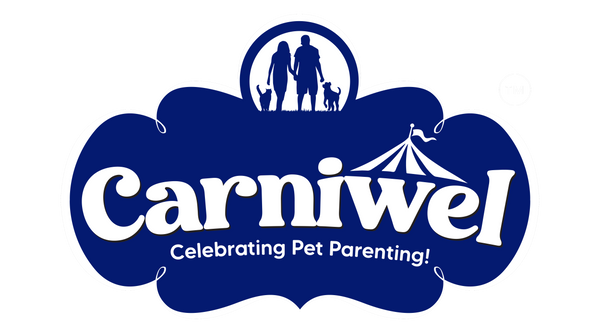Bringing your dog home for the first time can be overwhelming, both for you and your dog. No matter how much you read up and how prepared you make yourself, being a pet parent is as much a learning process as being a parent to two-legged children.
If you’re on the lookout for 10 simple things to keep in mind so you never have to ask yourself, “Have I done enough for my dog?”, we’ve got you covered! Here's a checklist for a first-time dog parent:
1. The First-time Dog Parent Vet Visit Schedule
Just like with children, identifying a vet for your dog and keeping to routine check-ups are your first step to responsible pet parenting. From keeping up with vaccinations and catching problems early, vet visits make sure that your dog’s health is always protected. Puppies need more frequent visits, while adult dogs should see the vet at least once a year for vaccinations, parasite checks, and general wellness. Keep a checklist or a planner with you so you can make sure not to miss anything essential.
2. Dog Food they actually need
With the ever-evolving pet care industry, stores are now filled with a variety of pet food. This can be overwhelming for a first-time dog parent. How do you know which is the best dog food you can get?
Dogs need age-specific pet foods that take care of their nutritional needs. Each stage has a different requirement:
Lactating Mums and Growing Pups need more calories for energy, and easily digestible protein. Starter dog food ranges from Carniwel and is suitable for both mother and newborn pups. They contain fresh, high-quality proteins that offer the following benefits:
- Supports lactation for the mother.
- The kibble is easy to rehydrate and digest for the pup.
- Develops the puppy’s brain due to EPA/DHA from Antarctic Krill.
- Provides immune-boosting benefits to the puppy.
Puppies have needs just like those of a growing human child. They need a well-balanced diet with the right amount of nutrients, namely:
- Proteins
- Carbohydrates
- Vitamins, and
- Minerals
Carniwel’s range of high-quality, fresh Proteins ensure that your puppy gets all the nutrition they need for muscle, bone, and cognitive development. And all this from premium ingredients that you can trust!
Adult dogs require nutrition that allows them to maintain muscle mass and bone health. Dry dog food for adults is also meant to care for their digestion and overall well-being. This makes sure that the happiness and carefree nature of your pet is sustained through every life-stage, no matter their breed.
Explore Carniwel’s range of premium dog food designed for all life stages, made with a variety of fresh meats. If meat is not for your dog, you can also find a completely vegan option!
3. Mental stimulation for the active
Dogs need their brains stimulated to stay active and agile! Engage them with puzzle toys, scent games, basic training sessions, and new experiences. Hide treats and dry dog food in puzzle feeders to keep them curious.
As a first-time pet parent, playing with your pet is one of the most important things you can do. Here’s why it helps:
- Not only is it a great way to form and build a bond with your dog, it is also a fantastic way to keep them mentally stimulated.
- Providing the right kind of mental stimulation tackles any potential behavioural issues, issues with aggression.
- It also builds on your bond with them.
Make sure to include treats while playing with them. Click here to learn about DIY toys for your pet!
4. Exercise schedules According to their Breed
Exercise isn’t one-size-fits-all! Different breeds have different energy levels and therefore, different exercise requirements. Here’s a quick guide:
| German Shepherds & Golden Retrievers | Highly active, need 90+ mins/day |
| Cocker Spaniels & Beagles | Active sniffers need 60–90 mins/day and a great deal of mental stimulation |
| Indies & Jack Russell Terriers | Agile, benefit from brisk walks and playtime |
| Toy Poodles & Shih Tzus | Moderate activity, 30–45 mins/day with light play |
Learning what your dog needs from their walks and how to make it more fun builds confidence in your bond with your dog. Take along some of your dog’s favourite treats to reward good behaviour!
5. Socialisation for the calm pupper
As a part of the training you will no doubt put your dog through, they also need you to expose them to different people, pets, environments, and sounds — especially during their first year. Socialisation is how you can teach your dog to adjust to new circumstances and environments. I If this feels overwhelming for you, as a first-time pet parent, remember to give your pup time and patience. Use treats during socialisation to create positive associations. A well-socialised dog is confident, calm, and less likely to develop anxiety or aggression. Remember to always train with compassion.
6. Unbeatable Dental Care
A commonly overlooked but vital aspect of dog health is dental hygiene.
- Brushing your dog’s teeth 2–3 times a week or offering dental treats helps prevent plaque, tartar, and bad breath.
- Get your dog used to having their teeth brushed from the time that they are puppies to make dental care easier for both you and your pet.
- Puppies also tend to teeth by biting fingers and furniture. Tackle this by getting teething toys and dental treats that can redirect their attention and strengthen their teeth as they develop.
7. Pet Parent Bonding during Grooming
Regular grooming keeps your dog comfortable, clean, and happy. Brush their coat based on breed (long-haired breeds need more frequent grooming), trim nails, clean ears, and bathe when necessary. Grooming is also a fantastic way to keep a check for small signs of health issues, as most common symptoms begin to show themselves in the hair and coat.
8. An Eye on the Waistline
Dogs tend to enjoy eating, and sometimes eat too much or too quickly. Regulating their food intake by feeding them well-balanced meals in the right amounts, using the right kinds of feeders, and ensuring your dog gets enough exercise helps combat obesity. Obesity can lead to weak joints, diabetes, and heart issues.
9. Gentle Boundaries
Dogs thrive on structure. Introduce house rules and boundaries gently and consistently — like waiting before going out, no jumping on furniture, or crate training. Use your dog’s favourite treats or dry dog food to train them. Make sure to be consistent, patient and compassionate while training. Consistency builds trust and reduces behavioural problems.
10. Positive Reinforcement for the Best Behaved
Praise, love, and treats go a long way! Always reward good behaviour with positive reinforcement, not punishment. During training, keep sessions short, fun, and treat-filled.
Being a new pet parent can be overwhelming, but it is also the start of a beautiful journey of joy, love and unconditional care. Making the right choice in the nutrition you provide for your dog goes a long way in protecting the joy and the celebration that pet parenting is!



 https://carniwel.com
https://carniwel.com





